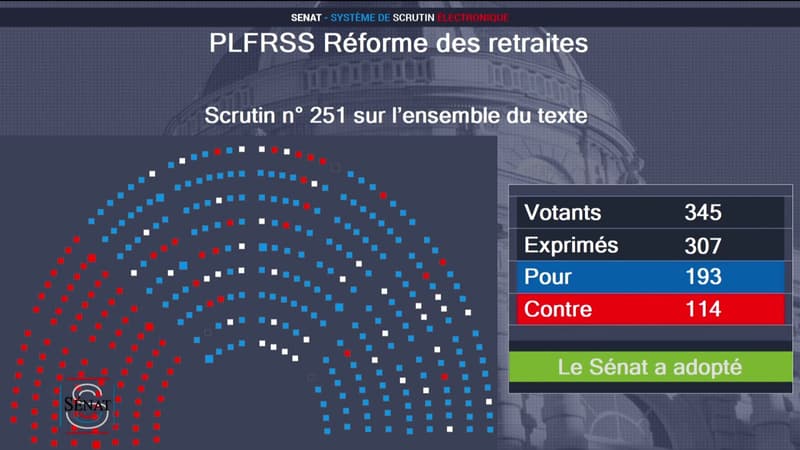No surprise. The Senate voted overwhelmingly in favor of the pension reform during the second reading of the bill this Thursday morning with 193 votes in favour, 114 against and 38 abstentions.
The right-wing senators who have the majority with the centrists have been supporting retirement at age 64 in the social security budget for several years. In other words, the government was on conquered ground. The executive, however, made sure to give promises.
Elected from LR very favorable to the reform
Olivier Dussopt had agreed to several requests from LR elected in the upper house, such as a surcharge for mothers, which limits the effect of the reform without annulling it. The joint joint commission, meeting this Wednesday, in charge of reaching a common text between the deputies and the senators, also assumed the high CDI wanted by the senators.
If this provision that aims to encourage employers to hire people over 60 in exchange for an exemption from social security contributions had been voted by the elected members of the Senate, the government had considered it too costly. Therefore, an agreement was reached to allow experimentation with a review clause.
On the issue of long careers that had put Aurélien Pradié under great stress, the government finally agreed to limit the contribution period to 43 years for employees who started working at 17 and 20 years of age. For the rest, they will have to contribute 44 years before they can leave, or sometimes even more.
The Senate, “the little dog of the government”
The senators had already broadly supported the text during their first examination in an electric atmosphere. Very upset by the left that had long rejected long careers and lowering the entry age to 64, the LR senators had activated article 38 of the Senate regulations to expedite debates.
Environmentalists then accused the right of being “the government’s little dog.” Before Olivier Dussopt activates the blocked vote procedure to force senators to vote with a single vote on the entire pension bill. This rarely used procedure had been seen by the left and the unions as “a coup d’état”.
Now it is up to the National Assembly to examine the pension reform in second reading at 3:00 p.m. in a very different environment for the government. If the executive still explains that he wants to go to the vote and that Emmanuel Macron poses the threat of dissolution in case of rejection by the deputies, 49.3 is never on everyone’s mind again. According to the BFMTV counter, only 222 deputies are ready to vote for the reform, far from the required 287 votes.
Source: BFM TV


